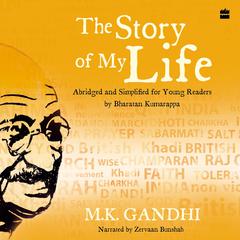 Play Audiobook Sample
Play Audiobook Sample
Freedom's Battle Audiobook
 Play Audiobook Sample
Play Audiobook Sample
Quick Stats About this Audiobook
Total Audiobook Chapters:
Longest Chapter Length:
Shortest Chapter Length:
Average Chapter Length:
Audiobooks by this Author:
Publisher Description
"Freedom's Battle" is an influential essay written by Mahatma Gandhi in 1922 during the Indian independence movement. In this thought-provoking piece, Gandhi reflects on the principles of nonviolent resistance and civil disobedience as a means to challenge and overcome oppressive systems.
The essay begins with Gandhi acknowledging the critical juncture at which the fight for freedom stands. He passionately articulates the necessity of the struggle for independence and the moral imperative for individuals to resist unjust laws and policies.
Gandhi introduces the concept of Satyagraha, emphasizing the power of truth and nonviolence. He argues that nonviolent resistance is not a strategy of the weak but a potent force that requires great courage and strength of character. He believes that nonviolence is not a submission to injustice but a proactive, assertive force that can transform both the oppressor and the oppressed.
Throughout the essay, Gandhi explores the moral duty of individuals to engage in civil disobedience when faced with unjust laws. He contends that obedience to an unjust law is in itself a form of violence, and breaking such laws nonviolently becomes a powerful instrument for societal change.
Gandhi also touches on the idea of self-suffering as a means of resistance. He advocates for willingly enduring the consequences of civil disobedience as a way to awaken the conscience of the oppressor and the society at large.
"Freedom's Battle" is a call to action, urging individuals to recognize their agency in the struggle for freedom and justice. It remains a significant work that encapsulates Gandhi's philosophy of nonviolence and its application in the pursuit of social and political change. The essay serves as a timeless inspiration for movements advocating civil rights, justice, and freedom around the world.
Download and start listening now!
Freedom's Battle Listener Reviews
Be the first to write a review about this audiobook!
About Mohandas K. (Mahatma) Gandhi
Mohandas Karamchand Gandhi (1869–1948) was the preeminent political and spiritual leader of India during the movement to free India from British rule. He was the pioneer of satyagraha, resistance to tyranny through mass civil disobedience, a philosophy founded upon total nonviolence, which led India to independence and inspired movements for civil rights and freedom across the world.











